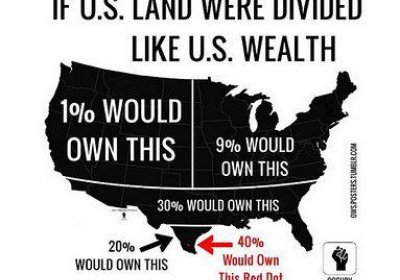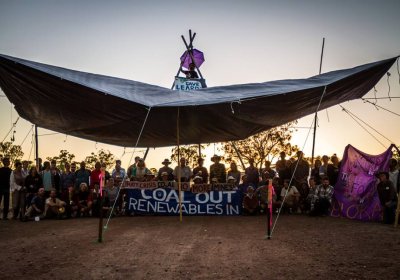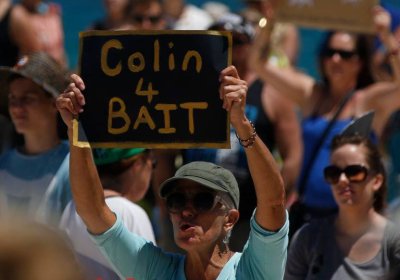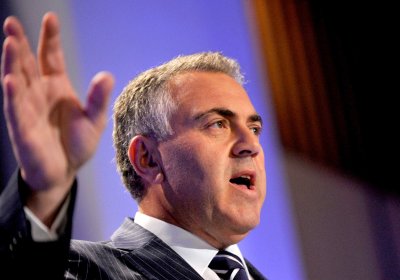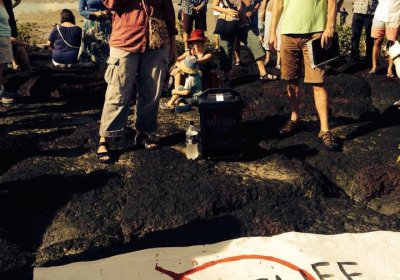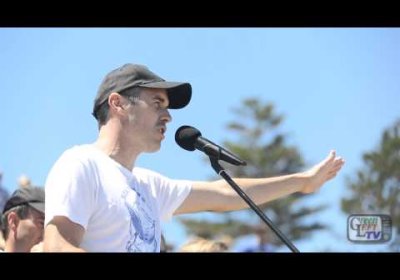In his State of the Union address on January 28, United States President Barack Obama highlighted growing inequality in the US. He also pledged to take steps to cut greenhouse gases in the atmosphere. So what has the Obama administration done recently on both counts?
Environment
Since their founding in 1896, every Olympics has arrived with the promise to unite the world.
One can still hear the lyrical words of the man who presided over the 1936 Berlin games, Chancellor Adolf Hitler, who said that he hoped his Nazi Olympics could help “knit the bonds of peace between nations”.
Hitler’s dreams of using the vessel of what is known as “the Olympic Movement” to create a harmonious world has tragically never come to pass, despite the best efforts of the aristocrats in the International Olympic Committee.
If you want evidence that the corporate rich are turning “sustainable” into a dirty word, then consider the recent award won by Australian bank Westpac. At last month’s World Economic Forum in Davos, Switzerland, the bank was named the most sustainable company in the world.
More than 100 people from Mackay, Adelaide, Melbourne and Sydney joined local activists in Maules Creek, NSW last week to bring attention to a battle that goes to the heart of Australia’s confrontation with climate change.
Maules Creek is the site of a proposed new coalmine to be operated by Whitehaven Coal. The proposal to build this mine has been the subject of dispute since its inception, but came to prominence in January last year as a result of a hoax press release.
About 7000 people rallied at Cottesloe Beach in Perth on February 1 to protest against the shark culling policy of the Western Australian Liberal government.
This “catch and kill” policy requires the Western Australian Department of Fisheries to maintain baited drum lines 1.4 kilometres off the coast. Federal Minister for the Environment, Greg Hunt granted an exemption for this under the Environmental Protection and Biodiversity Conservation Act because it is in the “national interest” of protecting public safety and tourism.
The growing ecological crisis and impending environmental catastrophe is leading more on the left to recognise that we need both red and green in our politics ― we have to be ecosocialists. One without the other is not going to work.
That is the strong message from the French Left Party, which has called for the founding of a European network, opposing the environmental degradation caused by capitalism’s relentless drive for profit.
“Bangladesh is a world leader in adaptation to natural disasters,” Bangladeshi community organiser Nasima Akter told a Toronto audience January 8. “But now climate change threatens to wash away all our gains.”
Akter had been invited by East End Against Line 9, a neighbourhood committee formed to protest against a proposed cross-Toronto tar-sands pipeline. The East End committee wanted to learn about the implications of Canada’s reckless tar-sands development for a poor and vulnerable nation.
The irony of fracking is that it destroys the natural resource it needs most.
The tragedy for those living near fracking operations is that natural resource is the fresh ― and increasingly scarce ― water supply on which they, too, depend.
Fracking ― or hydraulic fracturing ― is the fracturing or rock by pressurised liquid. It is used to access several natural resources, such as shale gas and coal seam gas, in otherwise out-of-reach places.
“The age of entitlement is over,” Treasurer Joe Hockey has bluntly told the Australian people. Hockey, entitled to a six-figure pension every year when he retires, suggests we must learn to get on with less.
“Steve's case is really a case about all of us,” renowned Indian environmentalist Vandana Shiva said in support of organic farmer Steve Marsh.
It is about the right to “have the freedom to eat healthy, safe organic food”.
Marsh lives in Kojanup in Western Australia, and is embroiled in a landmark “David v Goliath” legal case about the effects of genetically modified (GM) crops on his farm.
Hundreds of residents rallied on January 26 in response to a proposal to build a large residential island between 200 metres and one kilometre off Nightcliff Beach.
The proposal, dubbed “Nightcliff Island”, was revealed in Northern Territory parliament in June last year. Approval has only been given for exploration at this point but environmentalists are concerned about the impact on fauna-rich mangroves in the area.
About 7000 people rallied at Cottesloe Beach in Perth on February 1 to protest against the shark cull being carried out under the orders of the Western Australian Liberal government. This follows large protests in January when the plan was first proposed.
- Previous page
- Page 187
- Next page
